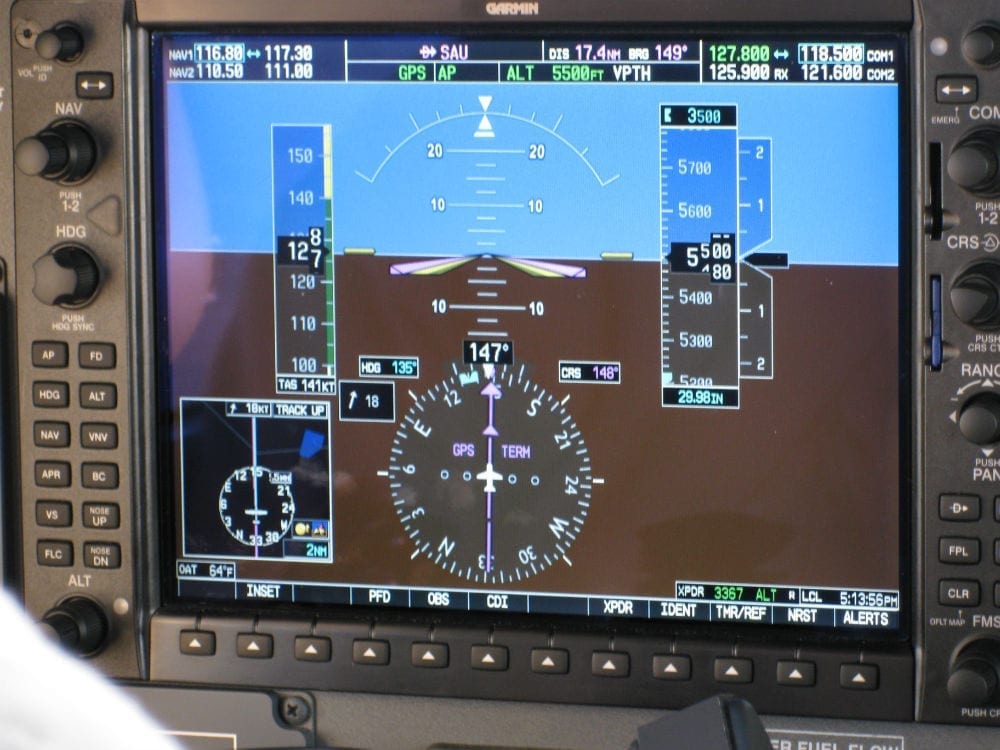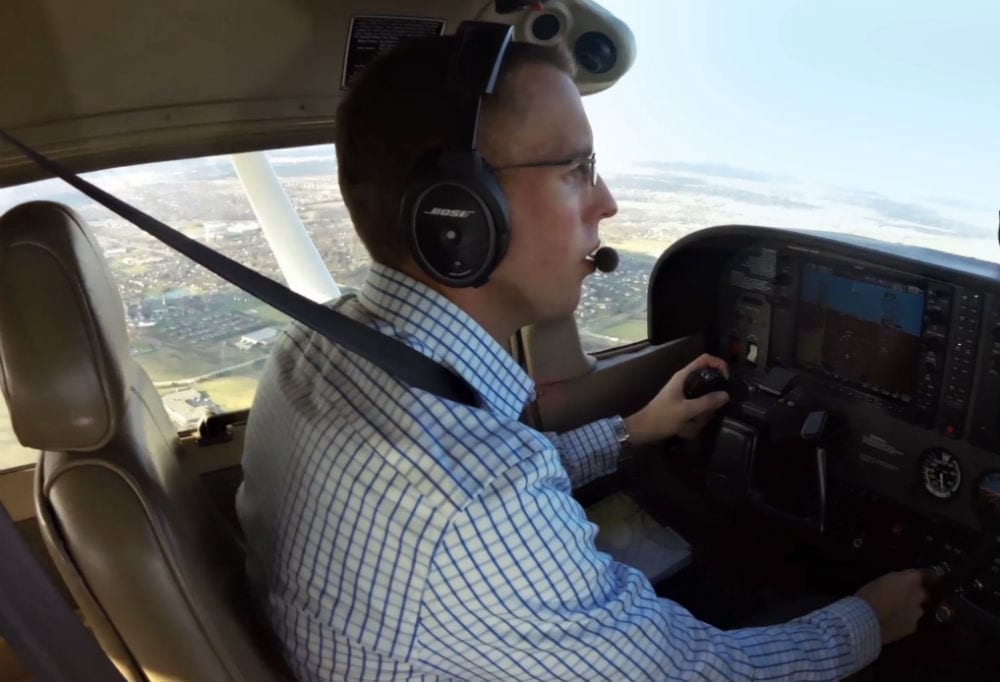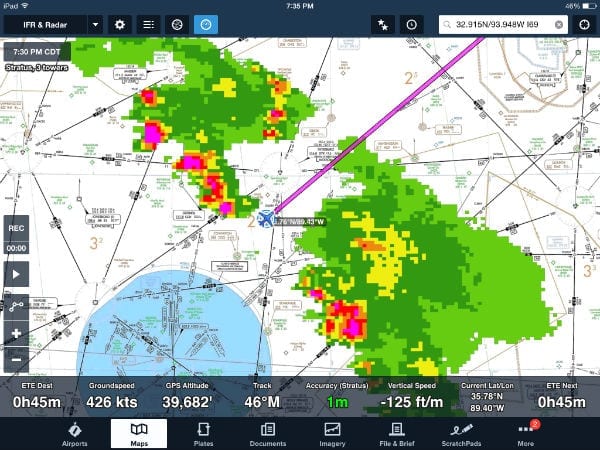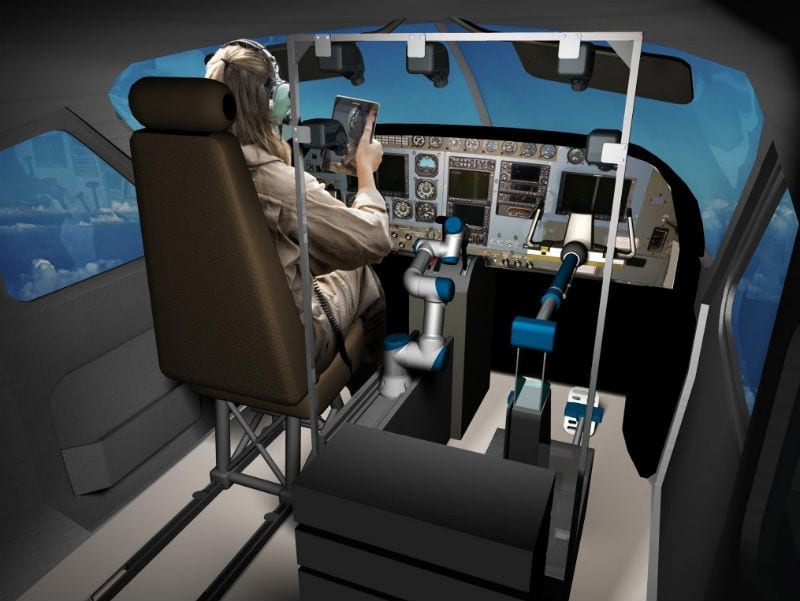
Avionics transitions – ain’t nothing like the real thing
John's blogAfter logging about 1,000 hours in a Pilatus PC-12 with a combination of round dials and EFIS tubes, the cockpit was recently transformed with a pair of Garmin G600 TXi primary flight displays (PFDs). The bright screens filled with synthetic vision views are simply incredible, and I genuinely feel safer flying behind them, but they also sent me back to school.

Don’t ruin a flying vacation with weather worries
John's blogSure, the convenience of traveling by general aviation is hard to beat, and as pilots we usually have a lot of fun just getting there. But there’s another factor that can quickly overshadow the fun - weather worries. I’ve battled this off and on for years, but a recent family trip to Disney World was almost ruined by my constant stressing about the weather.

The GPS revolution at 20 – how aviation has changed
John's blogDecades after it first caught on, GPS is so deeply embedded in everyday life that we now take it for granted. But as important as GPS has been for the world as a whole, it’s hard to think of an industry more transformed than general aviation. Consider the long list of capabilities that even a 60-year old Light Sport Aircraft can now have thanks to this revolution.

Know when to fold em: how to avoid tunnel vision in the cockpit
John's blogHave you ever noticed that you become less and less flexible as a flight goes on? Decisions that once would have been easy and stress-free become fraught when you're close to home. It’s a natural human instinct, but it’s one pilots need to aggressively fight.

Glass cockpits – don’t make it harder than it really is
John's blogToo many pilots exaggerate the difference between analog instruments and glass cockpits, as if it requires a completely new pilot certificate to make the transition. That’s simply not the case - the basics of flying are the same no matter what avionics you use. Focus on basic attitude flying, which, if anything, is easier on glass cockpits with their full-screen attitude display.

The next Cirrus? SureFly tries to reinvent the helicopter
John's blogI have seen the future, and it works… sort of. The SureFly looks a little like an upside-down octopus, but this hybrid gas-electric octocopter is striking nonetheless. It also represents one of the most interesting ideas in light aviation right now, with a unique mix of big ideas and pragmatic engineering.

Flying solo – why everything is different when you’re alone
John's blogOn those rare occasions when I am flying solo, I instantly notice how different the whole experience is. The safety record for solo flights is different too. A pilot flying solo needs to approach each flight with good habits and perhaps larger built-in safety margins. For me, that means thinking about four key areas: the condition of the pilot, cockpit habits, teamwork, and personal risk tolerance.

Death, taxes, and airspace
John's blogPilots and aviation lobby groups are up in arms right now about the potential privatization of Air Traffic Control, and rightly so. Unfortunately, these same groups have been much quieter about another government-led aviation disaster, one that has happened right under our noses: the relentless expansion of restricted and controlled airspace.

How to interpret radar in the cockpit
John's blogRadar seems so simple at first: red is bad, green is good. What else is there to know? As any pilot with more than a few cross countries in the logbook knows, quite a lot. While a lot of the problems with radar operation have been solved by datalink weather, few of the problems with radar interpretation have been solved.

General aviation trends in 12 charts
John's blogWhat's the state of the general aviation industry? That's a question we hear at lot at Air Facts, sometimes by prophets of doom looking for confirmation, sometimes by new pilots trying to get a handle on the community they have just joined, and sometimes by outsiders who genuinely don't know. Unfortunately there's no simple answer, but these 12 graphs offer a partial answer.

We all need to be weather geeks now
John's blogWhile apps like ForeFlight and Garmin Pilot can simplify the flight planning process, if we’re not careful they can also make it confusing. We are all our own Flight Service Stations now, forced to assemble weather information, evaluate it, and make a plan. Which sources can be trusted? What do they all mean? How much weather information is enough? To answer questions like these, pilots need more than just a passing acquaintance with Aviation Weather.

When the margins get thin
John's blogRichard Collins once summed up risk management, a subject that now elicits PhD-level jargon, in four simple words: “it’s all about margins.” Shave the margins too close and you're one bit of bad luck away from an accident. The importance of those margins was driven home for me on a recent flight in a Pilatus PC-12, when I allowed schedule pressure to reduce them just a little too much, but not in the usual way.

3 questions to ask about weather reports
John's blogWhen you consider the big picture, you're really creating a weather hypothesis - an overarching narrative that ties together the various weather reports. Not all weather reports are developed the same way, and not all deserve equal attention. Here are three questions to consider when comparing different weather products.

Silicon Valley discovers aviation – but for how long?
John's blogYou have to pay close attention these days to keep up with all the breathless news about "flying cars" and "disruptive aerial vehicles." The great and the good from the technology world have fallen in love with aviation lately, and their various startup companies have been launching aviation projects at an unprecedented rate in 2017. Do any of them have a chance? Does it matter?

The death knell for the vacuum pump?
John's blogThis year's Sun 'n Fun Fly-in didn't have any flashy new product introductions - no $50,000 LSAs or supersonic jets from unknown startups - but there may have been a more important trend unfolding. The vacuum-driven gyro may finally be on the way out. Thank goodness.

The scan: why instrument flying is an art, not a science
John's blogAsk a native English speaker what their strategy is for writing a sentence and you'll probably get a blank stare. After all, most of us don't read a textbook and come up with a methodical approach to grammar before we write an email. So why do we insist on this same robotic approach when teaching instrument flying?

Eight life lessons you learn as a pilot
John's blogBecoming a pilot changes who you are, even if you don’t realize it at first. Sure, there are the practical lessons about math, physics, and engineering you don’t encounter in everyday life. But as a recent trip through my logbook proved, aviation offers courses in the humanities as well as the hard sciences.

Two cheers for the FAA: why recent reforms should be welcomed
John's blogEveryone likes to complain about the Federal Aviation Administration, and often it's richly deserved. But for an open-minded pilot who's willing to ignore the typical pilot talk, there are some encouraging developments in aviation policy right now. If you can find it in your heart, the folks in Washington might even deserve our thanks.

Searching for a miracle cure to loss of control accidents
John's blogLike a bad golfer who is convinced the latest driver will fix his persistent slice, the aviation community keeps chasing miracle cures for loss of control accidents. But just like that golfer, pilots are likely to find that more practice beats bold new ideas.

What the artificial intelligence boom means for aviation
John's blogArtificial intelligence (AI) is the hot technology of 2016, finding its way into research papers and cocktail party conversations alike. As usual, most talk is either hopelessly optimistic or relentlessly negative (you know a trend is mainstream when you start reading headlines like, “Is fashion ready for the AI revolution?”). Cut through all the hype, though, and pilots can find a lot of reasons to be enthusiastic about AI.
